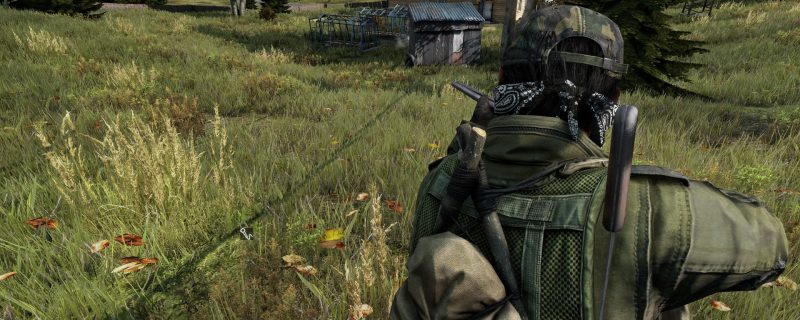
Early access games have been around at least since Mount & Blade in one form or another, but they have become far more common since the popularization of various crowdfunding platforms and the success of Minecraft. While many of them succeed, some tend to have more trouble delivering on their promises than others.
Asking players to support a game before it’s finished can certainly benefit developers, but taking that route may be problematic as well. Having people’s money involved from the start leads to higher expectations, which is often burdensome for smaller indie studios. There are many examples of early access games failing to become what they were advertised as or falling into development hell. Below you’ll find a collection of just such stories.
Stonehearth
This indie sandbox game by Radiant Entertainment showed up on Kickstarter in 2013 and quickly gained the attention of backers, who pledged over $750,000, vastly exceeding its original $120,000 goal. It is currently available in early access on Steam and has been since 2015.
Stonehearth is primarily a survival town builder and simulator, heavily inspired by Dwarf Fortress and various Sim games by Maxis. You start off with a couple of villagers (described in-game as hearthlings) and slowly gather resources, build new houses and defend yourself from orcs, goblins, wolves and other invaders. If you’re creative enough, you may even design your own buildings. The core gameplay is fun for the first couple of hours, but the lack of content in the game’s later stages and frequent bugs that halt construction or lead to other issues will soon remind you that Stonehearth is still in the alpha stage (even though it was supposed to come out in 2014).
The lack of content is the main problem right now, especially if you compare what’s in the game currently to what was promised during the Kickstarter campaign. Developers still have to add multiple playable races, hearthling classes, enemy types, factions, map biomes, festivals, a multiplayer mode and much more. After so much time, I doubt we’ll see too many of these features finished.
That said, there’s still some light at the end of the tunnel for Stonehearth. Last year progress was made in hearthling AI and other systems, and in a video earlier this year developers confirmed that 2018 would be more content-focused, as they started working on multiplayer and more map features. The indie studio is also very open about their process and uploads videos every Tuesday to let players know about the latest changes.
Star Citizen
Star Citizen first appeared on Kickstarter in 2012 and soon became one of the most crowdfunded video games in history—it has raised over $175,000,000 as of today. The man behind this enormous project is Chris Roberts, a game designer who worked on Ultima V: Warriors of Destiny and later created the Wing Commander series.
Star Citizen promises to be a ground-breaking MMO focused on exploring space, battling other players, trading, and finding your place in a vast universe full of procedurally generated planets and giant space stations. However, because of its constantly growing budget, the expectations are growing too, and after so much time the list of features that is supposed to end up in the final product has become somewhat ridiculous.
Earlier this year a new update named Alpha 3.0 was released. It was supposed to contain the core elements the game’s developers would build upon. In an interview with Eurogamer, Roberts described this stage as “akin to Early Access”, though some bits of Star Citizen have been available for public testing since 2013. The update received mixed reactions, as some players and reviewers pointed out the really low framerate and underwhelming gameplay.
That said, Star Citizen still has a significant, dedicated fanbase that believes in Chris Roberts’ vision. Backers can follow the development process through regular videos on the studio’s YouTube channel, and every couple of months there’s also a big community event that provides access to gameplay videos, updates on major changes and more.
While I have my doubts as to whether Star Citizen can live up to what has been promised, I do hope it succeeds. This project has plenty of potential, but it may take a few more years for us to see anything resembling a playable video game.
DayZ
The story of DayZ takes us back to 2012, when Dean Hall released the first version of his post-apo zombie survival game as a mod for ARMA 2. It was a massive success, so much so that it doubled the sales of the base game, as many people started buying it just to play the mod. Dean Hall later joined Bohemia Interactive to develop a standalone version of DayZ that was supposed to improve on performance, realism and the amount of content. In the following years, multiple other titles attempted to recreate the DayZ experience, including the controversial The War Z (now known as Infestation: Survivor Stories) or smaller projects, like Unturned.
The standalone game was first released through Steam Early Access at the end of 2013 and since then has sold over 3 million copies. The initial reactions were quite positive, but DayZ has received more than a little of criticism in the years since. Players have pointed out the lack of improvements to the game’s performance and an incredibly slow development process. On top of that, Dean Hall left the studio in 2014 to pursue his own projects.
Ultimately, even if DayZ is brought out this or next year, I doubt people would be willing to give it a second chance. The game’s player base has decreased significantly over the years and it feels like many have abandoned it for other titles. But who knows, maybe the console versions (that apparently have been in the works since 2014) will help a little…
Godus
Peter Molyneux is somewhat of a controversial figure in the games industry, and the strange tale of Godus only adds to his reputation. After leaving Microsoft and creating his new indie studio, 22cans, Peter launched a Kickstarter campaign to fund a new game inspired by one of his early projects, Populous.
On a conceptual level, Godus is a pretty simple god game. You start off with two castaways, and use both direct and indirect methods to help them build a prosperous settlement. You can explore the world, shape the terrain and guide your people through the ages. As a fan of city-builders and simulators I should love it, shouldn’t I?
Perhaps I would, if the game hadn’t been all but abandoned by the developers. Molyneux left the project a long time ago to make The Trail, while the studio seems to have forgotten about it too. This should come as no surprise, as barely anyone plays the game these days. 22cans made an attempt to restore players’ interest in 2016 with a weird RTS spin-off called Godus Wars, but it was quickly peppered with bad reviews and left to die in the depths of Steam.
Of course there have been other controversies surrounding Godus, including the whole Curiosity project/competition won by Bryan Henderson, who was supposed to receive a percentage of the game’s profits and a special role in the game. If you are guessing that he never got any of these things, you would be right.
Early access is a strange phenomenon in the games industry. Big companies tend to use it as a promotional tool, while small indie studios often struggle to finish things in time and suffer delays. That said, things aren’t as bleak as the examples above would suggest, and any number of games have successfully gone through early access, including Don’t Starve, Kerbal Space Program, Prison Architect and more recently Rust. Kickstarter and similar platforms give indie developers a plethora of new opportunities, but the process of making games is hardly any easier. For better or worse, it seems like early access is here to stay.
What do you think about early access? Have you ever supported a game before it was finished, and if so, how did it turn out?


























